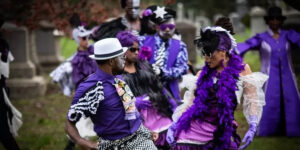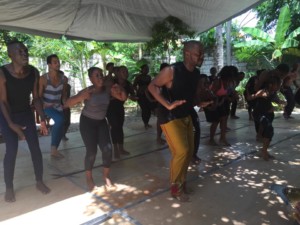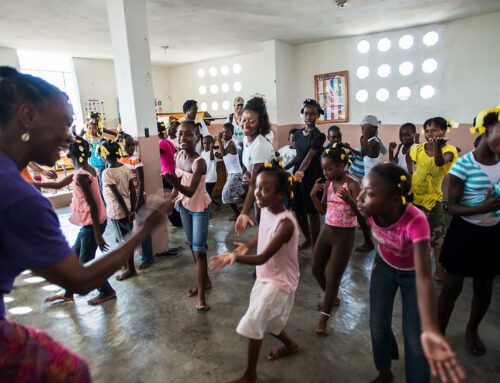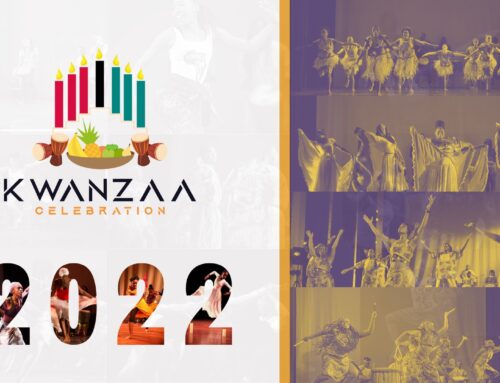Writing a paper on Haitian culture can go in so many different directions. I could write about the obvious bits of information that most people may know about. I could write pages upon pages about Haiti being the only country to be a European colony that fought and won its freedom from its colonizers. I could also write about the people who build such amazing pieces of architecture like the military fort known as Citadelle Laferrière in the town of Cap Haitien. I could even write about the contemporary culture of the Haitian people that gave us the musical gifts of Da Fugees founder and lead artist Wyclef Jean and their artist-turned-president Michel “Sweet Mickey” Martelly.
There are so many different directions a writer could go with writing about Haitian culture, however this essay will focus on the performance ethnography of the Haitian people. This information is tethered to the lifestyle of the Haitian people, which will allow us to briefly touch upon several different facets of Haiti that include, religion, spirituality, history and culture.
If you want to look for some the most battle-tested while simultaneously battle weary people of the African Diaspora, look no further than the island nation of Haiti. The people of Haiti have been in a perpetual state of war against their way of life since the French Revolution. It was during the French revolution when the slaves of African descent fought against Napoleon Bonapart and the people of France to become the only country to fight and win its freedom from its colonial oppressors. Since that historic victory, the people of Haiti have been under attack in some shape from opponents like the World Bank and even the United States government.
In our society, the mark of individual success is driven by one’s financial and social standing. If you subscribe to these societal norms, then the average Haitian would appear to not have much. The World Factbook reports a shortage of skilled labor, widespread unemployment and underemployment, saying “more than two-thirds of the labor force do not have formal jobs.” Looking at it from this perspective, the situation in Haiti does look quite dire and bleak, however Haitians are known for being survivors that cling to a very traditional warrior spirit. This “Traditional Warrior Spirit” goes back to the days of the Haitian Revolution, where the enslaved population of the then “Saint-Dominique” drove out the Spanish, French, and the British colonizers to lay down the foundation for what we now know to be both Haiti and the Dominican Republic. In looking at the historical aspects of Haitian culture, one cannot leave out the ceremony of BWA KAYIMAN (Bois Caiman), which took place August, 1971 near the city of Cap Haitian. It was this spiritual ceremony that began the Haitian Revolution. Led by the Vodou priest (which is also known as a Houngan) known as Dutty Boukman, the ceremony laid down the foundation for those who were enslaved to pledge themselves to the fight for freedom.
In understanding what Haitian folkloric dance and drum culture is, one must understand how this country came to fruition. The same rhythms and music played at Bwa Kayiman are the same rhythms that are played today in Haitian folkloric dance workshops. Diving in further into the culture, the Vodou tradition has spiritual entities that are divided into two major categories; HOT or COOL. Cool spirits fall under the Rada category, and hot spirits fall under the Petwo category. This information is critical, as most dances performed within Haitian Folkloric dance, falls underneath these two different categories. For example, a dance done for Ezili Danto would be danced to a Petwo Rhythm, while a dance done for La Siren would be dance to a Rada Rhythm.
In closing, there are many facets to the people of Haiti and their culture. I always tell people that if you want to learn the truth about Haiti, you have to visit the Caribbean nation. You have to talk to the people, eat some of there cuisine and don’t buy into what Hollywood has been selling regarding its cultural identity and legacy.







Keep In Touch